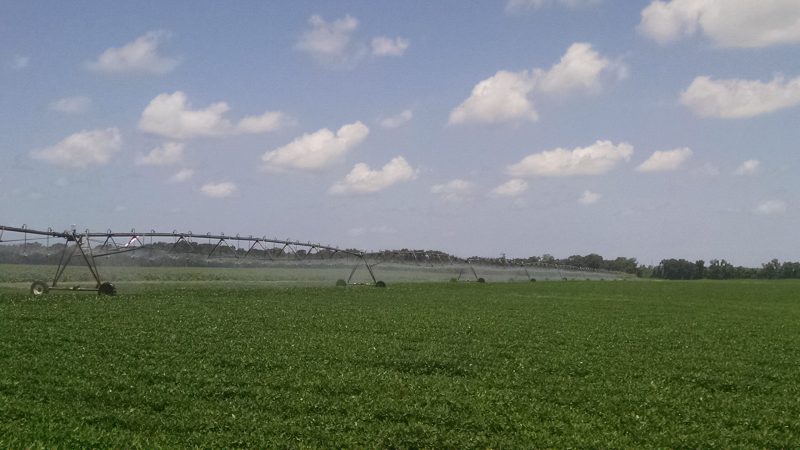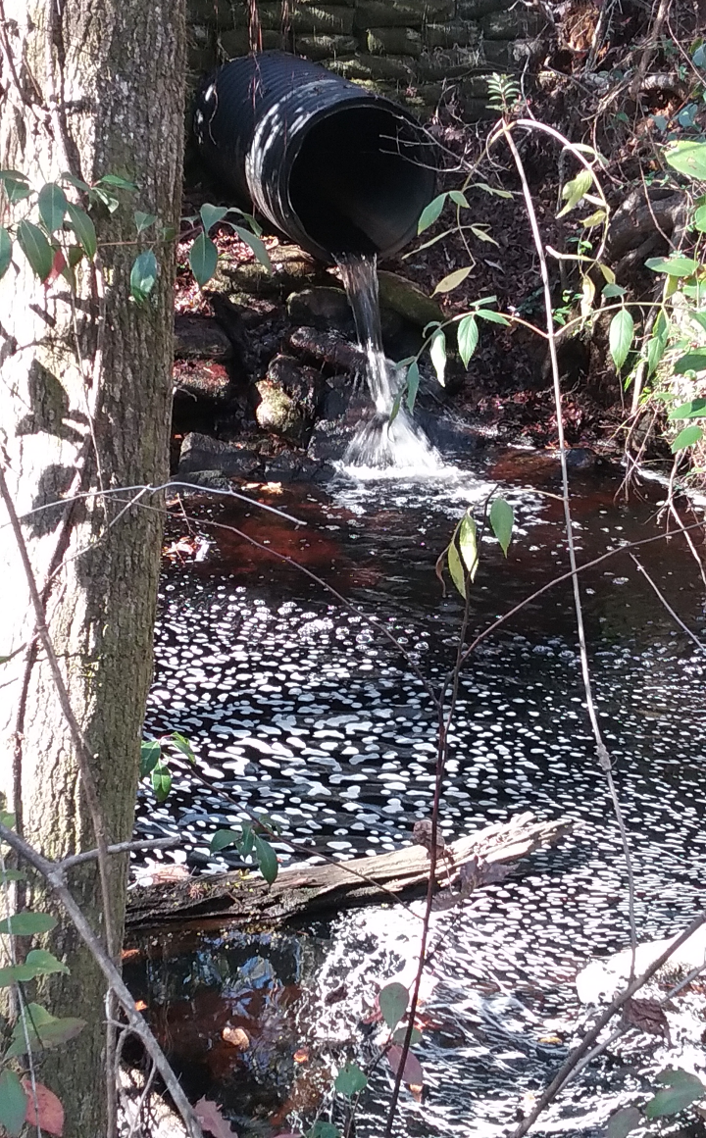
Senate SB 712 focuses on protecting Florida’s water resources. Image: Irrigated peanuts in Jackson County. Credit: Ethan Carter, UF/IFAS
–
Senate Bill 712, “The Clean Waterways Act,” was signed into Florida law on June 30, 2020. The purpose of the bill was to further protect Florida’s water resources, and focuses on minimizing the impact of known sources of nutrient pollution. These sources include septic systems, wastewater treatment plants, storm-water runoff, as well as fertilizer used in agricultural production.
–
How does the Clean Waterways Act impact agricultural operations?
SB 712 affects all landowners and producers enrolled in the Florida Department of Consumer Services’ (FDACS) Best Management Practices (BMP) Program. Under this bill:
- Every two years FDACS will make an onsite implementation verification (IV) visit to land enrolled in the BMP program. This is to ensure that BMPs are properly implemented. These visits will be coordinated between the producer and field staff from FDACS Office of Agriculture and Water Policy (OAWP).
- During these visits (and as they have done in the past), field staff will review records that producers are required to keep under the BMP program.
- Field staff will also collect copies of nitrogen and phosphorus application records.
FDACS-OAWP prepared a thorough document with responses to frequently asked questions (FAQ’s). It includes responses to questions about site visits, record keeping, why FDACS is collecting nutrient records, and what will be done with this information. The fertilizer records collected are not public information, and are protected under the public records exemption (Section 403.067 Florida Statutes). For areas that fall under a Basin Management Action Plan (BMAP), FDACS will combine the nitrogen and phosphorus application data from enrolled properties (total pounds of N and P applied within the BMAP), and will send that information to the Florida Department of Environmental Protection (FDEP).
Although SB 712 affects all producers enrolled in the BMP program, the bill requires FDACS to prioritize the Lake Okeechobee, Indian River Lagoon, Caloosahatchee River and Estuary, and Silver Springs BMAP areas.
To find out more information about the FDACS BMP program and how SB 712 affects producers in your area, contact your local FDACS field staff. FDACS also provides more information about the BMP Program on their Best Management Practices web page.
–
What other provisions are included in SB 712?
Other primary actions required by SB712 were listed in a news release by Governor DeSantis’ staff in June and include:
- Regulation of septic systems as a source of nutrients and transfer of oversight from the Florida Department of Health (DOH) to FDEP.
- Contingency plans for power outages to minimize discharges of untreated wastewater for all sewage disposal facilities.
- Provision of financial records from all sanitary sewage disposal facilities, so that DEP can ensure funds are being allocated to infrastructure upgrades, repairs, and maintenance that prevent systems from falling into states of disrepair.
- Updated stormwater rules and design criteria to improve the performance of stormwater systems statewide to specifically address nutrients.
Details of how this will all be implemented are still being worked out and we should hear more in the coming months.
Regarding septic systems, the transfer of the Onsite Sewage Program (OSP) from DOH to DEP becomes effective on July 1, 2021. DOH and DEP will submit recommendations on how the transfer will take place to the Governor and Legislature by the end of 2020. DOH created an OSP Transfer web page where information and specific documents related to the transfer are being posted.
- Testing Your Irrigation Water: A Key Step for Managing Crops and Equipment - November 21, 2025
- What to Do if Sinkholes Open on Your Property - November 15, 2024
- Crop Farmers Implementing BMPs in the Chipola River Basin - May 24, 2024

